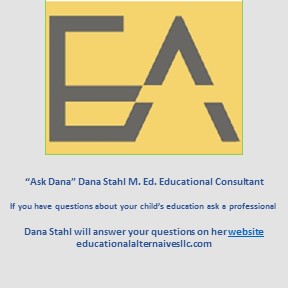Determined to Learn
As a young child, I received inadequate treatment for my learning disability. It was not until I was ten years old that a proper assessment and an appropriate treatment plan were initiated to begin remediating my disability. I was diagnosed as being dyslexic. Before I was tutored, I would close my eyes, see darkness and be unable to visually conceptualize any words. My reading comprehension and retention was below average, preventing me from following written directions for class assignments. My reading difficulties particularly affected my math performance, for I was unable to follow directions. I recall not having adequate concept of numerical values as represented by their accompanying symbols. Due to these learning deficits in both reading and math, elementary school entailed frustrating and often terrifying experiences.
However, through private tutoring, proper treatment plans, and self-determination, I rapidly improved. My academic strides enhanced my self-concept allowing me to become socially confident. Within a year-and-a-half, I was performing at grade level in all areas but math. I continued to devote all of my energies toward school and later graduated from Scarsdale High School a semester early with honors.
Although I had accomplished a great deal academically, I encountered many hurdles throughout my college years at Boston University. Reading was no longer difficult, but writing papers entailed long tedious hours of composing and editing paragraphs in the continuous attempt to write well. If I had essay exams, I would go home, write the answers and memorize all the essays in their entirety. This was easier for me than writing under pressure in class.
The abstract concepts needed to grasp math and science were not only difficult but at times impossible. It was as though I was a child again and could only see darkness. However, I was fortunate enough to have understanding teachers who allowed me to take my exams orally. Instead of taking a 50 item multiple choice test, I would take 3-hour one-on-one exams with the professor. Through the use of tangible materials, I would explain the concepts of the course objectives. For instance, through the use of peanut M&M’s, I illustrated molecular structures. Once in a frightened moment, I was handed a Velament by a professor and asked to find the density of the candy. I froze because I could not instantly remember the displacement theory and proceeded to eat the Velament, saying “Next question please.”
I was fortunate to have understanding professors and strong verbal abilities. Over the years, I gained the respect and admiration of my teachers. This was important to me, as I wanted them to acknowledge that I was a bright, capable woman who compensated well for her learning disabilities.
Upon completion of my master’s degree in May from The College of William and May, I will be a diagnostic/prescriptive clinician and will have the opportunity to properly assess children’s learning disabilities and provide treatment programs in which they can succeed. By effectively assisting children to achieve their academic tasks, and reach their highest potential, I will fulfill my professional goals.
Note: This is a true story. Dana hopes it will bring encouragement to other young people who are learning disabled but also eager to achieve. Dana would like to send a personal message to her future colleagues in the field of education.
“It is essential for educators to understand the necessity of administering individual diagnostic tests to all learning disabled children. The evaluation of the test results is a strong determining factor in leading to the proper assessment of children’s academic abilities. As a result of an improper assessment, inappropriate treatment plans would be implemented. Consequently, the children’s academic weaknesses would persist while they continued to fail. Therefore, it is imperative that there be suitable training for educational therapists in order to ensure a proper diagnosis, a just evaluation and an appropriate treatment plan for all learning disabled children.”
Reprinted from “Their World” Foundation of Children with Learning Disabilities, 1983


